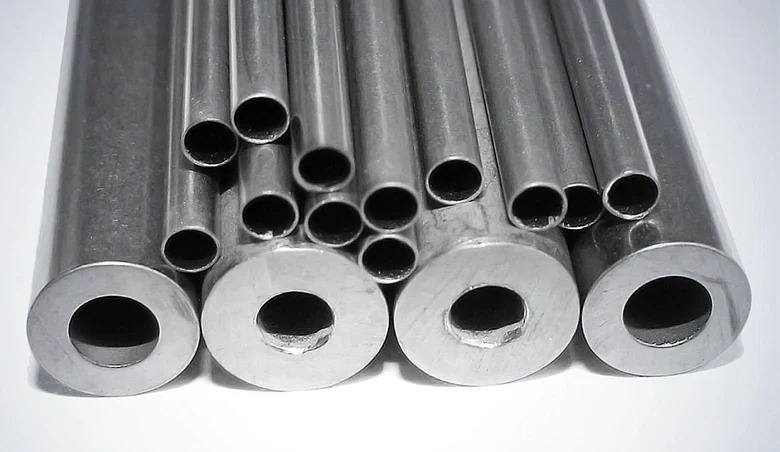The Sustainability of Monel: Is It Environmentally Friendly?
In the modern world, sustainability and environmental responsibility have become critical concerns across various industries. With growing awareness of climate change and environmental degradation, companies are prioritizing eco-friendly materials in their operations. One such material, Monel metal, renowned for its strength and corrosion resistance, is widely used in marine, chemical, aerospace, and various industrial applications. But the pressing question remains: is Monel alloy environmentally friendly? As we delve into the sustainability of Monel alloy, we will explore its life cycle, production, recyclability, and impact on the environment.
1. Understanding Monel Alloy’s Composition and Durability
Monel alloy is a family of nickel-copper alloys known for its exceptional resistance to corrosion and high strength, even in extreme environments. These alloys typically contain around 67% nickel, 30% copper, and small amounts of iron, manganese, carbon, and silicon. This unique composition makes Monel alloy highly durable and resistant to corrosion in seawater, acids, and alkaline environments, which extends its lifespan in many industrial applications.
From a sustainability perspective, the durability of Monel alloy contributes positively to its environmental footprint. Longer-lasting materials require fewer replacements and repairs, reducing the need for new raw material extraction and manufacturing. For industries like marine engineering and chemical processing, where equipment longevity is essential, Monel suppliers play a vital role in providing materials that ensure sustainability through durability.
2. The Environmental Impact of Monel Alloy Production
While Monel alloy is durable, we must examine the environmental impact of its production. The extraction and refinement of nickel and copper, the primary components of Monel alloy, are energy-intensive processes. Mining these metals can lead to habitat destruction, water pollution, and the release of greenhouse gases. Additionally, smelting and refining processes generate air and water emissions that contribute to environmental degradation.
However, advancements in mining and metallurgical technologies have improved the efficiency of nickel and copper extraction. Many Monel suppliers are committed to responsible sourcing practices, implementing measures to reduce the environmental impact of mining operations. This includes adopting greener mining practices, investing in technologies to reduce emissions, and managing waste more effectively. By sourcing raw materials from environmentally responsible suppliers, the overall ecological footprint of Monel alloy can be minimized.
3. Monel Alloy’s Recyclability: A Key Sustainability Advantage
One of the most significant factors that contribute to the sustainability of Monel alloy is its recyclability. Nickel and copper, the primary components of Monel, are highly recyclable without losing their inherent properties. This makes Monel alloy an excellent candidate for recycling at the end of its life cycle.
The recycling process for Monel alloy is relatively energy-efficient compared to the extraction of raw nickel and copper. When recycled, the alloy retains its strength, corrosion resistance, and durability, making it an ideal choice for new products. The widespread availability of scrap Monel alloy has led to a reduction in the demand for newly mined raw materials, further mitigating the environmental impact of producing the alloy.
Industries that use Monel alloy, such as marine and aerospace, benefit from its recyclability, as they can repurpose end-of-life components into new products. Many Monel suppliers offer recycling services, ensuring that scrap Monel is collected and reprocessed into usable materials, reducing waste and conserving resources.
4. Energy Efficiency in the Use of Monel Alloy
The use of Monel alloy in various industries often leads to improved energy efficiency. For instance, in heat exchanger systems, Monel alloy is favored for its ability to withstand extreme temperatures and corrosive environments. This durability ensures that heat exchangers perform at optimal levels for extended periods without the need for frequent maintenance or replacement. As a result, energy consumption for repairs, replacements, and downtime is minimized.
In the oil and gas industry, Monel alloy is used in applications such as valves, pumps, and pipelines, where corrosion resistance is critical. The use of Monel in these settings reduces the risk of leaks or failures, which can lead to costly environmental clean-ups and energy-intensive repairs. By ensuring equipment longevity, Monel suppliers contribute to energy conservation and environmental protection in these industries.
Moreover, Monel alloy’s ability to perform well in challenging environments reduces the need for secondary protective coatings, which often involve hazardous chemicals. This further enhances its environmental friendliness by reducing the need for harmful substances and minimizing resource use.
5. Monel Alloy’s Role in Reducing Industrial Waste
In industries where corrosion and material degradation are common, frequent component replacements generate a significant amount of industrial waste. However, the superior corrosion resistance of Monel alloy means that components made from this material last significantly longer than those made from less durable metals. This reduction in wear and tear minimizes the amount of waste generated over time.
For example, in the marine industry, Monel alloy is often used in seawater-facing components due to its exceptional resistance to saltwater corrosion. Boats, ships, and offshore platforms using Monel experience fewer part failures and require less frequent replacements. By extending the life cycle of marine equipment, Monel suppliers contribute to reducing the overall waste generated by the marine industry.
In aerospace applications, where material failure can have catastrophic consequences, Monel alloy is preferred for its high strength and resistance to oxidation. The use of Monel in critical components such as engine parts and fuel systems reduces the frequency of part failures, thereby lowering the need for disposal and waste generation in the aerospace industry.
6. Monel Alloy’s Contribution to a Circular Economy
A key aspect of sustainability is the promotion of a circular economy, where materials are reused, recycled, and repurposed to minimize waste and resource consumption. Monel alloy fits well into this model due to its recyclability and long service life.
Many industries are now adopting circular economy principles, focusing on reducing material waste and encouraging the recycling of metals. As part of this effort, Monel suppliers are increasingly offering products made from recycled materials. This reduces the need for new raw materials and decreases the environmental impact of production processes. By embracing the principles of a circular economy, Monel alloy is helping industries move toward more sustainable practices.
Furthermore, as industries become more environmentally conscious, the demand for materials like Monel alloy, which can be recycled and reused indefinitely, is likely to grow. This shift towards sustainable materials will drive innovation and create opportunities for Monel suppliers to develop eco-friendly alloys for future applications.
7. The Future of Monel Alloy in Green Technology
As industries transition toward greener technologies, Monel alloy will likely play a crucial role in this movement. Its unique properties, including corrosion resistance, high strength, and recyclability, make it an ideal material for renewable energy systems, electric vehicles, and green infrastructure projects.
For example, in the renewable energy sector, Monel alloy can be used in offshore wind turbines, where materials must withstand harsh marine environments. The durability and resistance of Monel to corrosion ensure the long-term performance of wind turbines, contributing to the generation of clean energy.
Monel suppliers are also working with industries to develop new applications for Monel in environmentally friendly technologies. These innovations will continue to drive the use of Monel alloy in sustainable practices, reducing the environmental impact of industrial activities.
Conclusion
In conclusion, Monel alloy offers several sustainability advantages due to its durability, recyclability, and performance in extreme environments. While the production of Monel involves energy-intensive processes, the long life cycle and recyclability of the alloy help mitigate its environmental impact. By extending the lifespan of industrial equipment and reducing waste, Monel suppliers contribute to more sustainable industrial practices. As industries increasingly adopt circular economy principles, Monel alloy will continue to play a key role in supporting green technologies and promoting a more sustainable future.





